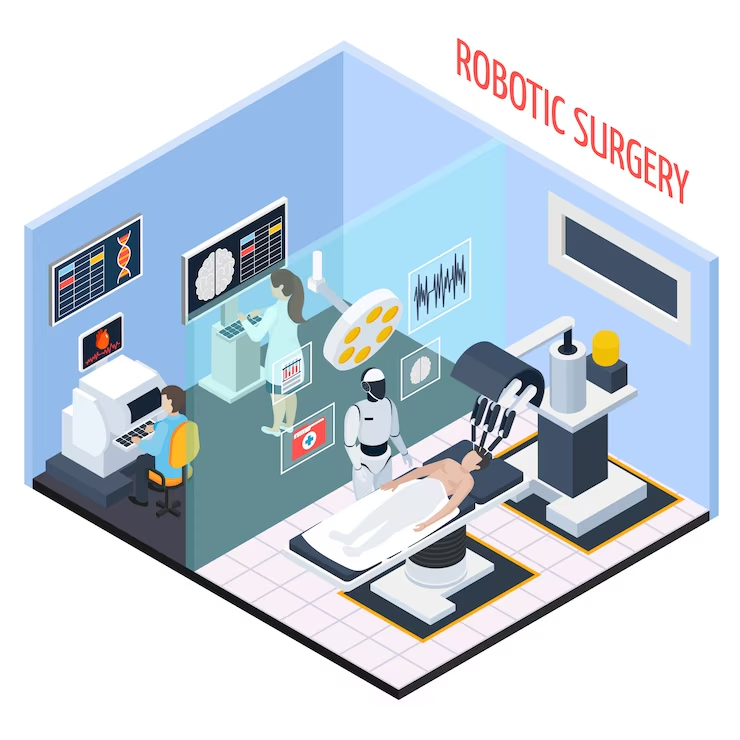Advancements in Orthopedic Surgery: Innovations Shaping the Future | Phoenix Orthopedic Surgeons
Orthopedic surgery has come a long way in recent years, with impressive technological advancements revolutionizing the field. These innovations have the potential to shape the future of orthopedics, providing patients with more effective and minimally invasive treatment options. In this blog, we will explore some of the latest technological breakthroughs in orthopedic surgery, their potential impact on the future of the field, and the role of Phoenix Orthopedics surgeons as leaders in surgical innovations. Additionally, we will discuss our predictions for orthopedics in the next five to ten years.
What are some of the latest technological advancements for orthopedic surgery?
a. Robot-assisted Surgery:
Robot-assisted surgery is a cutting-edge technology that enhances the precision and accuracy of orthopedic procedures. These robotic systems provide surgeons with real-time feedback and a three-dimensional view, enabling them to perform complex surgeries with enhanced dexterity and control. This advancement reduces the risk of human error and leads to improved patient outcomes, especially in joint replacement surgeries.
b. 3D Printing in Implants and Custom Devices:
3D printing has revolutionized the manufacturing of orthopedic implants and custom devices. Surgeons can now create patient-specific implants tailored to individual anatomy, resulting in better fit and alignment. This technology significantly improves implant longevity and patient satisfaction.
c. Minimally Invasive Techniques:
Advancements in minimally invasive techniques have transformed orthopedic surgery. Smaller incisions, specialized instruments, and endoscopic technology allow surgeons to perform complex procedures with reduced trauma to surrounding tissues. Minimally invasive surgeries lead to quicker recovery times and lower complication rates for patients.
d. Biological Enhancements and Regenerative Medicine:
Biological enhancements and regenerative medicine are emerging as promising areas in orthopedics. Platelet-rich plasma (PRP) and stem cell therapies promote tissue healing and regeneration, accelerating recovery and potentially delaying the need for surgery in some cases.
How might these advancements impact the future of orthopedics?
The latest technological advancements in orthopedic surgery hold tremendous potential for shaping the future of the field:
a. Improved Patient Outcomes:
Robot-assisted surgery and 3D-printed implants are likely to result in more precise and personalized treatments, leading to improved patient outcomes and greater patient satisfaction.
b. Shorter Recovery Times:
Minimally invasive techniques and regenerative medicine may lead to shorter recovery times, allowing patients to return to their normal activities faster and with reduced post-operative discomfort.
c. Enhanced Training for Surgeons:
As these technological advancements become more mainstream, orthopedic surgeons will undergo specialized training to utilize these innovations effectively. This will result in a generation of highly skilled surgeons capable of providing state-of-the-art care.
d. Continued Evolution of Orthopedic Procedures:
With ongoing technological advancements, orthopedic procedures will continue to evolve, becoming safer, more efficient, and less invasive. This will pave the way for treating a wider range of orthopedic conditions with minimally disruptive approaches.
What makes Phoenix Orthopedics surgeons a leader in surgical innovations?
Phoenix Orthopedics surgeons stand at the forefront of surgical innovations due to several key factors:
a. Expertise and Experience:
Phoenix Orthopedic surgeons possess extensive experience in performing complex orthopedic surgeries, allowing them to adapt to and embrace new technologies effectively.
b. Investment in Technology:
The practice has heavily invested in the latest surgical technologies, ensuring their surgeons have access to state-of-the-art equipment and tools.
c. Research and Collaboration:
Phoenix Orthopedics surgeons actively engage in research and collaborate with medical institutions, staying abreast of the latest advancements and contributing to the development of new techniques.
d. Patient-Centered Approach:
At Phoenix Orthopedics, patient care and satisfaction are paramount. Their commitment to personalized treatment plans and innovative surgical options sets them apart as leaders in the field.
Where do you see Orthopaedics in five to ten years?
In the next five to ten years, we can expect orthopedics to reach new heights:
a. Personalized Medicine:
The use of 3D printing and regenerative medicine will become even more sophisticated, allowing for completely personalized orthopedic treatments.
b. Artificial Intelligence (AI) Integration: AI will play a significant role in surgical planning and decision-making, assisting surgeons with real-time data analysis and predictive modeling for better outcomes.
c. Telemedicine and Remote Monitoring: Orthopedic care will become more accessible through telemedicine, enabling remote consultations and post-operative monitoring, improving patient convenience.
d. Biological Solutions: The field of regenerative medicine will expand, providing biological solutions for joint preservation and cartilage repair, potentially reducing the need for major surgeries.
The latest advances in orthopedic surgery offer promising opportunities for enhanced patient care, improved outcomes, and greater convenience. As Phoenix Orthopedics surgeons continue to lead in surgical innovations, the future of orthopedics looks bright, with personalized treatments, minimally invasive techniques, and cutting-edge technologies becoming the standard of care. Embracing these advancements will undoubtedly improve the lives of countless patients, providing them with a safer and more effective approach to orthopedic health.




Comments
Post a Comment